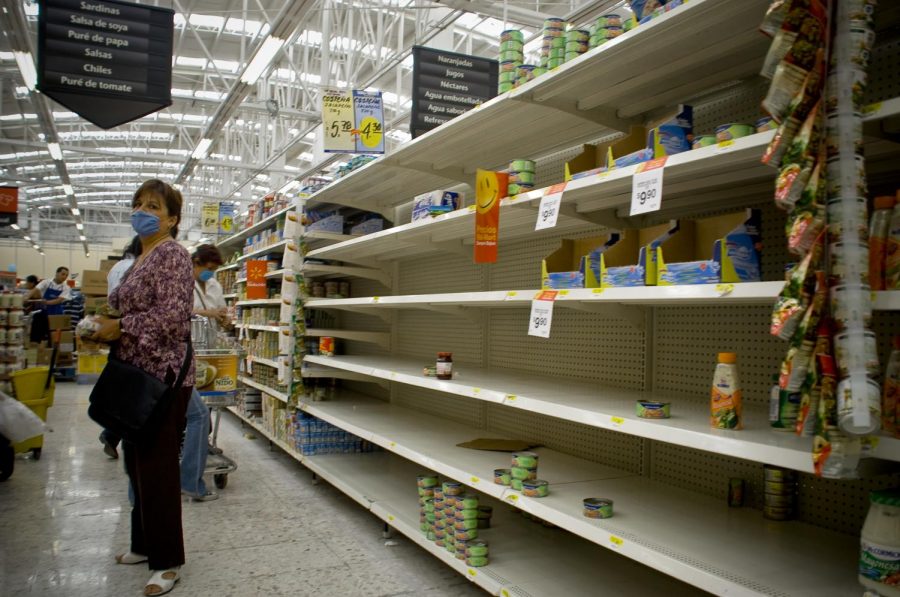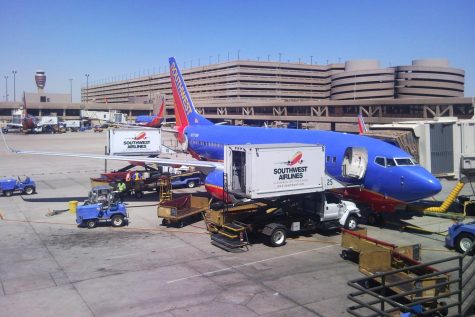Businesses face new challenges with increasing demand on every-day products
April 11, 2020
The challenges for Arizona businesses that supply everything from beef to toilet paper are growing, as demand increases along with the disruptions caused by the coronavirus.
According to the Arizona Republic the Arizona Food Marketing Alliance, which represents supermarkets and other food companies, said that the high demand for paper towels, bathroom tissue, bottled water, sanitizing products and various other items have put a strain on the system.
“There will be shortages for a period of time for the production and deliveries to reach our warehouses,” the group said in a prepared statement. They adding that the food industry is,”working tirelessly to ensure that products are in stock on our shelves.”
Nancy Keane, the spokeswoman for Albertsons and Safeway, said all stores throughout Arizona will be closing one hour earlier and opening an hour later, but the truck deliveries are “business as usual,” and stores aren’t limiting products for sale at this time.
Basha’s, Food City and AJ’s stores will host special shopping hours for elderly customers, customers ages 65 and up, on Wednesdays from 5 a.m to 6 a.m starting Mar 18, according to the article.
Toilet paper has been the hardest hit-items where it has virtually disappeared from local store shelves.
“For the life of me, I don’t understand it,” Allen Morrison, a professor of global management at the Thunderbird School of Global Management at Arizona State University, told AZ Republic. “We’re not using any more toilet paper than before.”
Heidi Brock, CEO of the American Forest & Paper Association reassured that the response in high demand for toilet paper hasn’t changed in the manufacturing or how its produced.
“This situation is highly dynamic and changing daily, and the industry is working diligently to respond to the spike in demand for tissue products due to coronavirus (COVID-19) purchases,” she said in a prepared statement. “Rest assured, tissue products continue to be produced and shipped — just as they are 52 weeks each year.”
Agriculture has been disrupted as well because of COVID-19 interrupting overseas shipments and thus forcing our frozen storage facilities to be at maximum capacity according to Stephanie Smallhouse, president of the Arizona Farm Bureau.
And part of the problem, according to the article, are the slowdowns at the ports initially hit by the trade wars on Asian countries but now the exports are difficult to send out since there are no ships nor appropriate containers to move the latest harvest out to market where commentary by the Anderson School of Management at UCLA predicts a recession will begin in the second quarter.
The pressure on certain manufacturing items from products like electronics and pharmaceuticals, to furniture and toys are predicted to have ripple effect disruptions in manufacturing since factories had to close for two months in China.
“A laptop computer might have 130 different components, made in different countries,” Morrison said. “All you need is one or two components to go missing, and the product goes unfinished.”












